
Enoch Arnold Bennett was an English author, best known as a novelist, who wrote prolifically. Between the 1890s and the 1930s he completed 34 novels, seven volumes of short stories, 13 plays, and a daily journal totalling more than a million words. He wrote articles and stories for more than 100 newspapers and periodicals, worked in and briefly ran the Ministry of Information during the First World War, and wrote for the cinema in the 1920s. Sales of his books were substantial, and he was the most financially successful British author of his day.

Orwellian is an adjective describing a situation, idea, or societal condition that George Orwell identified as being destructive to the welfare of a free and open society. It denotes an attitude and a brutal policy of draconian control by propaganda, surveillance, disinformation, denial of truth (doublethink), and manipulation of the past, including the "unperson"—a person whose past existence is expunged from the public record and memory, practiced by modern repressive governments. Often, this includes the circumstances depicted in his novels, particularly Nineteen Eighty-Four, despite the narrative depicting a society in which only governmental employees are under repressive scrutiny, but political doublespeak is criticized throughout his work, such as in Politics and the English Language.

Dame Margaret Drabble, Lady Holroyd, is an English biographer, novelist and short story writer.

Dame Antonia Susan Duffy, known professionally by her former married name, A. S. Byatt, was an English critic, novelist, poet and short-story writer. Her books have been translated into more than thirty languages.
Maureen Theresa Howard was an American novelist, memoirist, and editor. Her award-winning novels feature women protagonists and are known for formal innovation and a focus on the Irish-American experience.
Gillian Freeman was an English writer. Her first book, The Liberty Man, appeared while she was working as a secretary to the novelist Louis Golding. Her fictional diary, Nazi Lady: The Diaries of Elisabeth von Stahlenberg, 1938–48, was assumed by many to be real.

Dora Spenlow is a character in the 1850 novel David Copperfield by Charles Dickens. She is beautiful but childish. David, who is employed by her father, the lawyer Mr Spenlow, falls in love with Dora at first sight and marries her. She proves unable to cope with the responsibilities of married life and is more interested in playing with her dog, Jip, than in keeping their house. All this has a profound effect on David, but he still loves her. A year into their marriage, she suffers a miscarriage; her health steadily declines until she dies.

The Peppered Moth is a 2000 novel by English writer Margaret Drabble; it is her fourteenth published novel. The novel follows the fictional experiences of three generations of women within one family, and contains several elements that are loosely based on Drabble's own biographical experience.
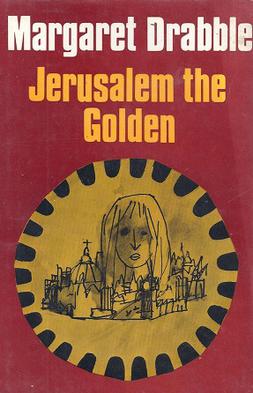
Jerusalem the Golden is a novel by Margaret Drabble. Published in 1967, it won the James Tait Black Memorial Prize.

The Witch of Exmoor is a 1996 novel by Margaret Drabble. The novel is a social novel, with a focus on exploring the state of post-Thatcher Britain through the Dickensian satire of the Palmer family. The title describes the satirical protagonist, Frieda Palmer, who provides the source of much of the social commentary.
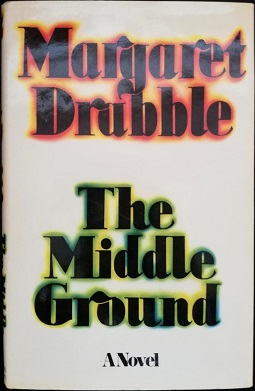
The Middle Ground is a 1980 novel by British novelist Margaret Drabble. It is her ninth published novel. The novel explores the "crisis of British urban life" through the eyes of a middle aged journalist, Kate Armstrong.

The Red Queen is a 2004 novel by British novelist Margaret Drabble. The novel describes the trip of a British academic on a trip to Seoul to give a paper at a conference. At the beginning of the novel, the academic, Dr. Babs Halliwell, reads the memoir of a 19th-century Korean princess.
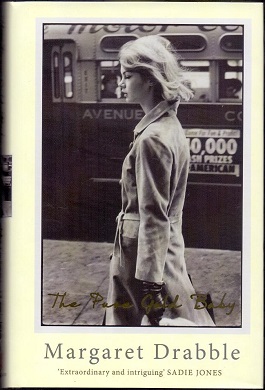
The Pure Gold Baby is British novelist Margaret Drabble's 18th novel, first published in 2013. The novel was her first novel to be published in seven years, following The Sea Lady. In 2009, Drabble had pledged not to write fiction again, for fear of "repeating herself."
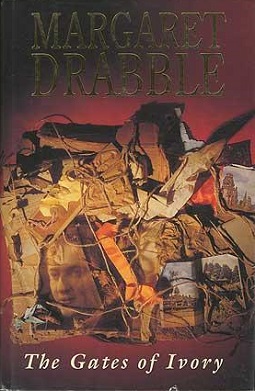
The Gates of Ivory is a 1991 novel by novelist Margaret Drabble. The novel is the third in a series of novels, following The Radiant Way and A Natural Curiosity. The novel continues the stories of several middle aged intellectuals introduced in the last two novels. The novel also introduces a new character, Stephen Cox who is loosely based on J.G. Farrell.

The Needle's Eye is a 1972 novel by British novelist Margaret Drabble. The novel was well received by reviewers, like contemporary novelist Joyce Carol Oates. Though it was her fifth novel, Drabble described it as her first time that she could "actually write a novel" expressing what she wanted to write.

The Realms of Gold is a 1975 novel by British novelist Margaret Drabble. The novel explores the mid-life experiences of anthropologist Frances Wingate and her affair with Karel Schmidt.

The Seven Sisters is a 2002 novel by British novelist Margaret Drabble. The novel reflects on a mid-life crisis of an estranged Candida, when she moves to a rundown London apartment. The novel largely follows Candida's evasive and sometimes deceptive representation of events, including an epistolary section which is her "computer diary".
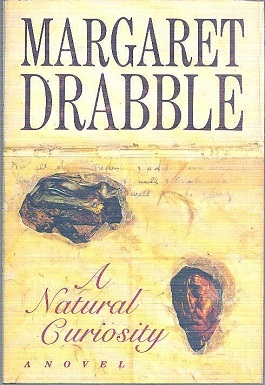
A Natural Curiosity is a 1989 novel by Margaret Drabble. The novel is an unintended sequel to Drabble's 1987 novel The Radiant Way, which follows the lives of the three protagonist women first introduced in that novel. The novel continues Drabble's interest in exploring the contemporary experience of the British middle class through the eyes of women.
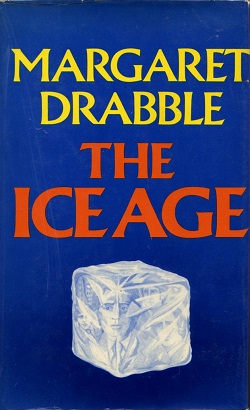
The Ice Age is a 1977 novel by British novelist Margaret Drabble. The novel follows the experiences of former BBC producer Anthony Keating as he experiences the ups and downs of life during the 1960s and 1970s. Depicting the property crisis in Britain during that period, novel diverges from her earlier psychological studies of individuals, focusing more on the "state of England".
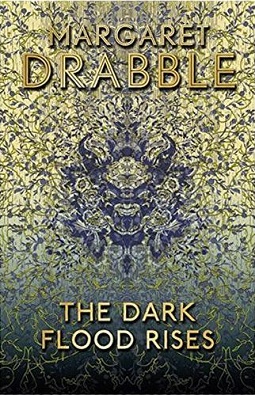
The Dark Flood Rises is the 19th novel of Margaret Drabble, and was first published in 2016.


















